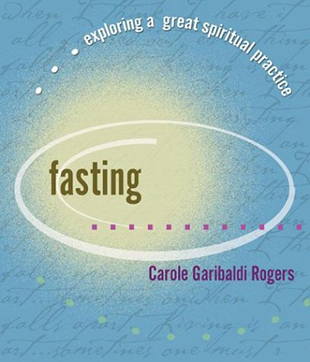"Fasting has deep roots in both the American civil rights movement and the peace movement. Charismatic leaders like Martin Luther King, Cesar Chavez, and Daniel and Philip Berrigan all recognized the power of fasting. How can we understand the connection between fasting and political action?
"Participants note that political actions, like marches, demonstrations, or vigils, allow them to make a statement, express their indignation, provide a voice for the powerless, become part of something larger than their own self-interest.
"The act of fasting adds an extra dimension to their commitment. It says they are willing to subject themselves to discomfort to give weight to their convictions and to express their solidarity with other human beings who are suffering. It is for many participants a necessary ethical response to an alarming situation.
"In this context, we look more closely at two aspects of fasting.
"First, fasting is part of the personal preparation for the action; it is a way to 'clear the decks' — to clarify intent and focus one's attention. Advocates say that being hungry, whether it's for only one day or for a longer forty-day fast, enhances their understanding of hunger and thirst, not only for food and water but also for peace and justice.
"The Jesuit priest G. Simon Harak, who has fasted as part of the peace movement for more than twenty years, says that participants must first clear away any negative motivations that surround fasting. Giving up food, which is essentially a negative act, should not be used to express self-destructive patterns in an individual. Nor should fating express a desire to punish the society. One cannot, he says, go into a political fast thinking, for example, 'When I hurt myself, then they'll have to pay attention.'
"We see here a clear expression of what peace activists say is the bottom-line difference between a hunger strike and a political fast: A hunger strike does violence to the participant and attempts to hold others hostage to a particular agenda, which is also a violent act.
"Rather, Harak says, fasting as a political act stems from our recognition of the dignity of every individual, our own and those for whom we fast. Fasting is a supremely human act. Animals can't fast. They can go without food, but they can't choose to fast. Once we are in contact with our own self-worth, Father Harak concludes, fasting becomes a positive act, which allows us to express our human freedom and our personal values.
"Rose Marie Berger, a member of Sojourners, an ecumenical Christian community based in Washington, D.C., has also fasted frequently for peace. She believes that fasting always has a political aspect. Fasting is a way of 'unhooking ourselves from a consumer culture, realigning ourselves with our deeper selves, and being open to whatever happens.' She explains with her own experience: 'I live in a culture where all kinds of things are preying on my soul. For me the tradition of fasting, and making it a regular component of my spiritual life, helps me remember that I'm not beholden to all these things that want to lay claim to me, that I'm spiritually free and that I can act out of that spiritual freedom.'
"Members of the peace movement, she says, choose to fast to open themselves up to creative possibilities — what they hope will be new ways to solve intractable problems.
"Second, fasting can also be viewed as an essential element of the action itself. For observers and participants alike, fasting makes a clear connection between personal behavior and political responsibility. It demonstrates individual commitment and it is a way to draw attention to the cause.
"Father Harak says: 'You can't think of yourself except as a member of a community. To be isolated is really an inconceivable thought . . . Once we see the human as an essentially social being, then physical statements of every kind, from parades and juggling to fasting and demonstrations, have an impact on the society's self-understanding. So when we fast in solidarity, we, in a sense, use our hunger as an engine for the desire for peace and justice for a particular group of people, whoever they may be. We are brining the hunger of those for whom we fast into the body politic and we are calling for the body politic to respond.'
"Highlighting a somewhat different example, Ms. Berger notes that in the Middle East, 'there have been a number of times when groups have come together across the lines of division — Palestinians and Israelis, Christians and Jews and Orthodox — simply saying to each other, We don't know what else to do because our cultures are at war, but we will fast together and pray together through silence.' The fasting and the silence, she says, 'changed something in those people. In the openness that fasting allowed, they developed respect for each other. They were then able to go back to their communities and serve to some small extent as peacemakers, as people who brought a different perspective.'
"There are, she says, illustrations of dramatic public statements like Sister Diana Ortiz' 1996 Fast for Truth in front of the White House and at other times 'small hidden examples of how people try to practice the discipline of fasting in a way that leads to more peaceful co-existence.' Both are valid expressions of commitment."
